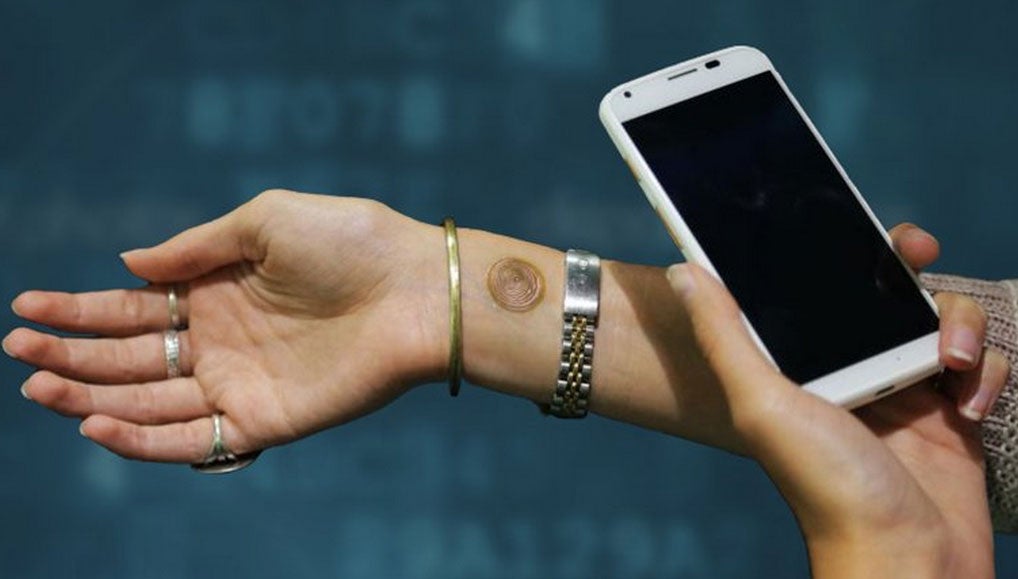Unlock your smartphone with a digital tattoo
Temporary patch lasts for five days and sells in packs of five for $10

Your support helps us to tell the story
From reproductive rights to climate change to Big Tech, The Independent is on the ground when the story is developing. Whether it's investigating the financials of Elon Musk's pro-Trump PAC or producing our latest documentary, 'The A Word', which shines a light on the American women fighting for reproductive rights, we know how important it is to parse out the facts from the messaging.
At such a critical moment in US history, we need reporters on the ground. Your donation allows us to keep sending journalists to speak to both sides of the story.
The Independent is trusted by Americans across the entire political spectrum. And unlike many other quality news outlets, we choose not to lock Americans out of our reporting and analysis with paywalls. We believe quality journalism should be available to everyone, paid for by those who can afford it.
Your support makes all the difference.A temporary ‘digital tattoo’ that lets wearers unlock their smartphones without having to punch in a code has gone on sale for $10 in the US.
Created to work exclusively with Motorola’s Moto X smartphone, the small circular patch uses near field communications technology (NFC) to talk to mobile device and lasts for five days once stuck to the user’s skin.
The technology behind the tattoo was originally developed by Google’s ATAP research and development team (otherwise known as the Advanced Technology and Projects group – they're currently make 3D-capable and modular smartphones) and the patches are currently being sold at $10 for a pack of five.
“An average user unlocks their phone 39 times a day and it takes them 2.3 seconds every time they do so,” says Google’s Deepak Chandra in a promotional video. “It is so cumbersome that more than 50 per cent of users do not lock their phones, exposing their personal data to theft.”
Chandra and his fellows obviously think an easy way round this is to make everyone spend $10 on electronic tattoos every month – although the company previously developed a NFC clothes clip that does the same job without needed to be replaced (unless you leave it in the wash).
The idea of a ‘digital tattoo’ sounds exotic, but developments in flexible electronics are making this an increasingly common product category - Motorola even patented a similar patch which offers a built-in microphone last year.
Join our commenting forum
Join thought-provoking conversations, follow other Independent readers and see their replies
Comments